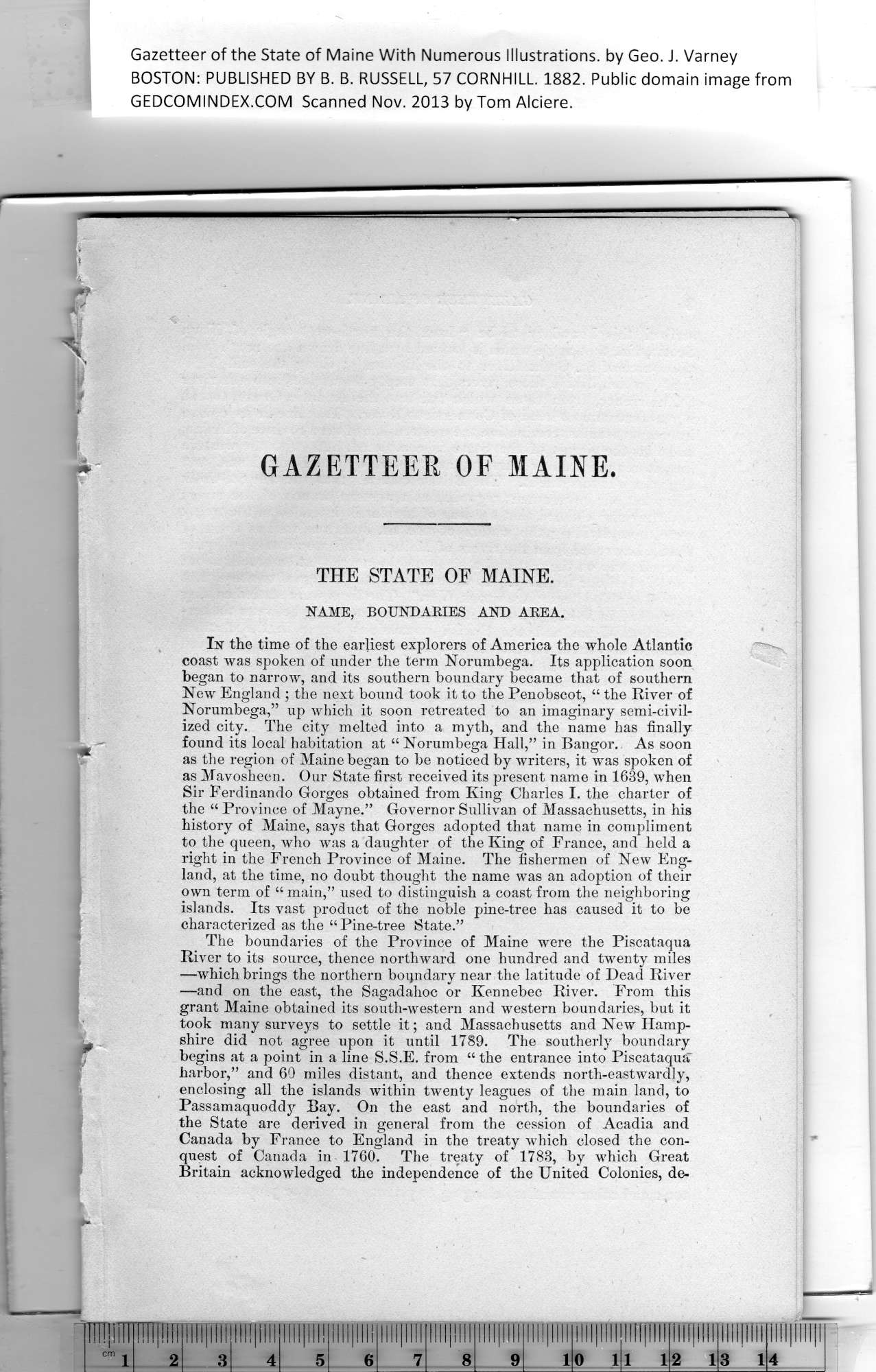GAZETTEER OF MAINE.
THE STATE OF MAINE.
NAME, BOUNDARIES AND AREA.
In the time of the earliest explorers of America the whole Atlantic
coast was spoken of under the term Norumbega. Its application soon
began to narrow, and its southern boundary became that of southern
New England ; the next bound took it to the Penobscot, “ the River of
Norumbega,” up which it soon retreated to an imaginary semi-civil¬
ized city. The city melted into a myth, and the name has finally
found its local habitation at “ Norumbega Hall,” in Bangor. As soon
as the region of Maine began to be noticed by writers, it was spoken of
as Mavosheen. Our State first received its present name in 1639, when
Sir Ferdinando Gorges obtained from King Charles I. the charter of
the “ Province of Mayne.” Governor Sullivan of Massachusetts, in his
history of Maine, says that Gorges adopted that name in compliment
to the queen, who was a daughter of the King of France, and held a
right in the French Province of Maine. The fishermen of New Eng¬
land, at the time, no doubt thought the name was an adoption of their
own term of “ main,” used to distinguish a coast from the neighboring
islands. Its vast product of the noble pine-tree has caused it to be
characterized as the “Pine-tree State.”
The boundaries of the Province of Maine were the Piscataqua
River to its source, thence northward one hundred and twenty miles
—which brings the northern boundary near the latitude of Dead River
—and on the east, the Sagadahoc or Kennebec River. From this
grant Maine obtained its south-western and western boundaries, but it
took many surveys to settle it; and Massachusetts and New Hamp¬
shire did not agree upon it until 1789. The southerly boundary
begins at a point in a line S.S.E. from “ the entrance into Piscataqua
harbor,” and 60 miles distant, and thence extends north-eastwardly,
enclosing all the islands within twenty leagues of the main land, to
Passamaquoddy Bay. On the east and north, the boundaries of
the State are derived in general from the cession of Acadia and
Canada by France to England in the treaty which closed the con¬
quest of Canada in 1760. The treaty of 1783, by which Great
Britain acknowledged the independence of the United Colonies, de-
PREVIOUS PAGE ...
NEXT PAGE
This page was written in HTML using a program written in Python 3.2
|
